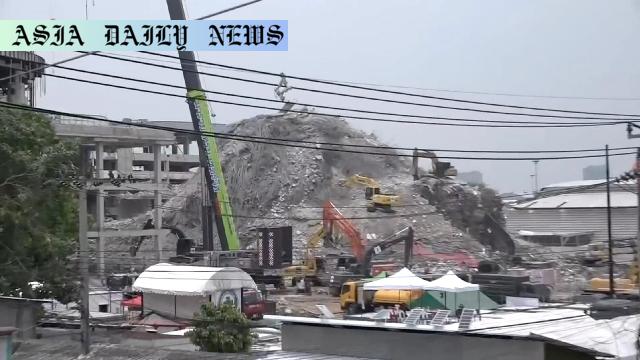Bangkok building collapse leaves devastation, scrutiny, and detentions as authorities investigate negligence and violations.

Grieving a Tragedy: The Bangkok Building Collapse
The collapse of a high-rise building in Bangkok on March 28 has left a devastating mark, with many lives lost and others affected irreparably. The under-construction building came down suddenly during an earthquake in Myanmar, claiming 53 lives, with over 40 individuals still unaccounted for. This catastrophe unfolded as structural issues, potentially rooted in negligence, came to light. What should have been a symbol of progress and development has instead become a graveyard of shattered dreams.
The Ongoing Investigation
The collapse has spurred a significant investigation led by Thailand’s Department of Special Investigation, part of the Justice Ministry, to identify and prosecute those involved. Authorities detained three Thai nationals, who are shareholders of the local subsidiary of a Chinese state-owned company, which was jointly responsible for the building’s construction. These individuals have been accused of aiding foreign nationals in navigating restricted business practices in Thailand. Although the three men have been granted bail, their apprehension underscores a broader pursuit of accountability and attests to Thailand’s stand against impropriety.
International Scrutiny and Broader Implications
Earlier in the month, a Chinese executive tied to the state-owned enterprise was also arrested. Accused of using Thai associates as proxies to bypass local laws, the executive faces charges of illegal business operations. While he has been released on bail, local authorities have restricted his movements, barring him from leaving the country. These legal developments highlight the complexities of international joint ventures and emphasize the need for stricter compliance measures to prevent similar tragedies in the future.
Unanswered Questions and Future Measures
The incident raises crucial questions: how can regulations be more stringent in construction projects, and what role does foreign influence play in ensuring safety standards? As authorities await the findings of ongoing forensic investigations, the tragedy serves as a stark reminder of the catastrophic effects of potential negligence and a call for reforms that guarantee accountability in cross-border projects. The collapse and its legal aftermath may drive future policymaking to monitor foreign involvement and institutional transparency in Thailand’s booming infrastructure landscape.
Despite legal actions underway, justice for victims and families remains the priority. Efforts to search for the missing continue, but for the grieving families, no resolution may provide full solace. As Thailand grapples with this tragedy, it carries a sobering lesson for developers worldwide: safety is not negotiable, and lives are irreplaceable.
Commentary
Reflecting on the Bangkok Building Collapse
The tragic collapse of the Bangkok high-rise is both an architectural and human disaster, highlighting the fragile balance between progress and oversight. At the core of this incident lies a profound human toll—families mourning loved ones, others still hoping for the missing to be found, and a community united in grief. The loss of 53 lives amidst the chaos of the earthquake is a stark reminder of the magnitude of such disasters, but what compounds this heartbreak is the possibility of preventable negligence.
Lessons in Accountability
This tragedy has unveiled gaps in oversight and raised critical questions regarding the role of foreign entities in nation-specific industries. The detention of both Thai and Chinese individuals underlines a systemic issue that goes beyond borders. While economic development thrives on international partnerships, the Bangkok incident highlights the dire need for stringent laws governing collaborative efforts. It leaves us questioning: was this calamity avoidable, and could better checks have safeguarded against it?
Architecting a Safer Future
As the legal proceedings unfold, one can only hope they bring justice to those affected and prevent future mishaps. Incorporating lessons learned from this catastrophe into policy frameworks can pave the way for safer infrastructure. Ensuring transparency and accountability, especially in cross-national ventures, can serve as a deterrent to negligence while fostering trust in large-scale projects. For the bereaved families, no policy can replace their loved ones, but proactive measures can at least ensure that such an incident never occurs again.
Ultimately, the Bangkok building collapse is a wake-up call not just for Thailand but the broader construction and regulatory sectors around the globe. It reminds stakeholders everywhere that safety standards and due diligence are non-negotiable, and lives must always take precedence over profit.


